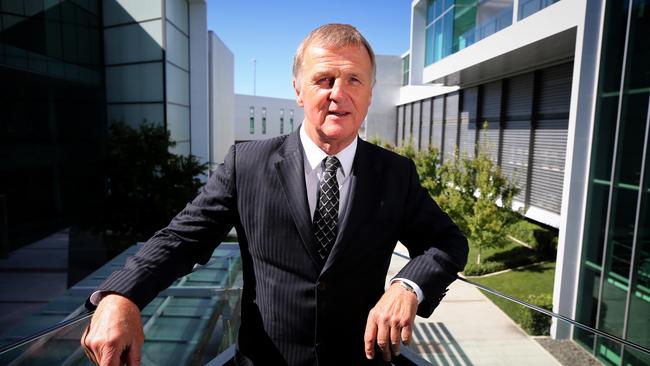Call for transparency as Chinese miss out on Ausgrid
Super fund heavyweight Garry Weaven has called for more transparency in infrastructure privatisation.

Industry super fund heavyweight Garry Weaven has called for greater transparency in the privatisation of key infrastructure assets following Scott Morrison’s decision to reject two Chinese bids for Ausgrid.
The treasurer knocked back the Chinese bids for a 99-year lease of Australia’s most valuable electricity network citing national interest grounds, but this is expected to see industry funds IFM Investors and AustralianSuper reconsider bidding for the asset.
The Australian industry super funds had previously decided not to bid against State Grid Corporation of China in the Ausgrid process after the bid rules stated that the state-owned entities would be allowed to buy up to 50.1 per cent of the network in one piece.
The other bidder was Hong Kong’s Cheung Kong Infrastructure, which has owned gas and electricity distribution assets in Australia for two decades.
Mr Weaven, the chairman of $60 billion IFM Investors, declined to comment on IFM’s future intentions on Ausgrid, but he described the Ausgrid sale process as flawed.
“The truth of it is that governments haven’t developed policies to rationally lead the investment community in these processes,’’ he said yesterday.
Another key player in the local super industry, who declined to be named, agreed.
“Hopefully this means that upfront they agree what the rules are. The federal government has to set the rules upfront,’’ the player said.
Mr Weaven said he was in favour of key infrastructure assets having “some sovereign protection’’.
“They should be owned by companies regulated or controlled in Australia or there should be partnerships with such companies,’’ he said.
“The real message here is that there needs to be a new understanding with sovereign funds or those companies closely associated with governments of other countries as to how they go about it.’’
He stressed that foreign bidders from any country should not be excluded from sale processes.
“We hear that from some parts of the agricultural sector and other vested interests. I don’t share that opinion.’’ He said Mr Morrision’s decision would clearly open up opportunities for Australian superannuation funds as they looked to invest more in local infrastructure and hoped the government handled discussions with the Chinese government on the way forward sensitively.
“I hope our government handles it appropriately — more appropriately than some of our athletes have,’’ he said.
Advisers involved in the Ausgrid process claimed State Grid had been informally briefed for the past three months about the need to have an Australian partner and a bidding entity with Australian directors, despite the open slather rules provided by the NSW government. “But they were simply tone deaf,’’ the adviser said.
Attention is now turning to other local asset deals, most notably the lease of the Port of Melbourne. Bids for that asset are due by mid-September.
It has been reported that China Merchants was told it would need to find a co-investor if it wanted to win the lease for the asset, the country’s largest shipping container terminal.
It is understood local parties were prepared to partner with the Chinese, but not as a minority investor in a bidding consortium.
Other mooted future asset sales that could attract Chinese interest include the Port of Fremantle and the Australian Rail Track Corporation.
A bid by Chinese conglomerate China Resources to acquire cancer and cardiac services business GenesisCare is currently subject to approval by the Foreign Investment Review board. GenesisCare is the largest provider of radiotherapy across Australia.
Macquarie is partnering in the bid and using its own balance sheet to take equity in GenesisCare alongside the Chinese firm.





To join the conversation, please log in. Don't have an account? Register
Join the conversation, you are commenting as Logout